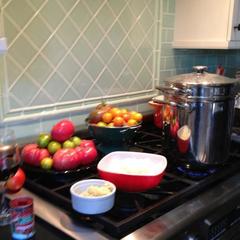-
Welcome to the eG Forums, a service of the eGullet Society for Culinary Arts & Letters. The Society is a 501(c)3 not-for-profit organization dedicated to the advancement of the culinary arts. These advertising-free forums are provided free of charge through donations from Society members. Anyone may read the forums, but to post you must create a free account.
Advice for the NYTimes's New Restaurant Critic
-
Similar Content
-
- 12 replies
- 492 views
-
- 26 replies
- 22,398 views
-
- 23 replies
- 10,495 views
-
- 7 replies
- 1,784 views
-
- 0 replies
- 706 views
-
-
Recently Browsing 0 members
- No registered users viewing this page.





Recommended Posts